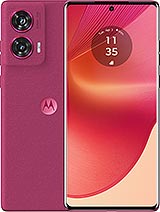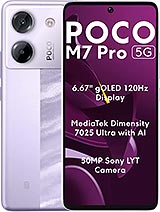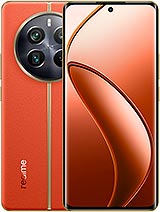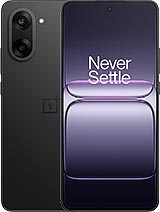Motorola Edge 50 Fusion alternatives
Tap above to see alternatives.
Vivo V50e alternatives
Tap above to see alternatives.
Motorola Edge 50 Fusion

Motorola Edge 50 Fusion
-
Snapdragon 7s Gen 2
4 nm
-
5000 mAh
68W
-
6.7"
1080x2400 pixels
-
50 MP
4K@30fps
- Specs
4x2.40 GHz Cortex-A78
4x1.95 GHz Cortex-A55
4x2.5 GHz Cortex-A78
4x2.0 GHz Cortex-A55
8GB 256GB (UFS 2.2)
12GB 256GB (UFS 2.2)
12GB 512GB (UFS 2.2)
8GB 256GB (UFS 2.2)
f/1.9, (wide), dual pixel PDAF, OIS, 1.0µm
13 MP
f/2.2, 120˚ (ultrawide), 1.12µm, AF
f/1.8, (wide), 1/1.95", 0.8µm, PDAF, OIS
8 MP
f/2.2, 116˚ (ultrawide)
1080p@30/60/120fps
1080p@60fps
f/2.5, (wide), 0.7µm
f/2.0, 22mm (wide), 1/2.76", 0.64µm, AF
1080p@30fps
1080p@60fps
SIM1: Nano, SIM2: Nano
SIM1: Nano, SIM2: Nano
12 5G bands
n1, n3, n5, n7, n8, n20, n28, n38, n40, n41, n77, n78
9 5G bands
n1, n3, n5, n8, n26, n28, n40, n77, n78
In this performance comparison, the Vivo V50e with its Mediatek Dimensity 7300 (4nm) performs better than the Motorola Edge 50 Fusion with the Qualcomm Snapdragon 7s Gen 2 (4nm), thanks to superior chipset efficiency.
Vivo V50e launched with Android 15 and will receive updates until Android 18, whereas Motorola Edge 50 Fusion launched with Android 14 and will get Android 17. Vivo V50e will get security updates until 2029 (approx. 4 years), while Motorola Edge 50 Fusion is supported till 2028.
Both Motorola Edge 50 Fusion and Vivo V50e feature AMOLED displays, offering vibrant colors and deeper blacks. In terms of smoothness, Motorola Edge 50 Fusion offers a higher 144 Hz refresh rate, ensuring fluid scrolling and animations. Vivo V50e also boasts a brighter screen with 1800 nits of peak brightness, enhancing outdoor visibility. Both phones have the same screen resolution.
Vivo V50e features a larger 5600 mAh battery, potentially delivering better battery life. Vivo V50e also supports faster wired charging at 90W, compared to 68W on Motorola Edge 50 Fusion.
Vivo V50e offers better protection against water and dust with an IP69 rating.
¹ Scores can vary even with the same chipset due to RAM, thermals, and software optimization.











